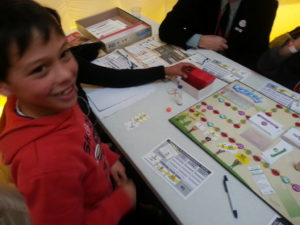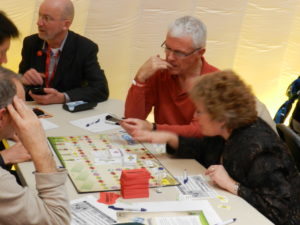In this series we aim to debunk some of the commoner myths about co-operatives – the stereotypical beliefs that people hold about what a co-operative is, which can lead to misunderstanding and can prevent people from recognising the very real value of the co-operative business model.
EQUAL PAY
The second topic is equal pay – in a co-op everyone gets paid the same, don’t they? No, not always, some co-operatives do have an ‘equal pay for all’ policy, for example worker co-operatives in the wholefood sector, but this is by no means common. Of course equity is one of our co-operative values, so all co-operatives would subscribe to equal pay for equal work. However many co-operatives do have pay scales and pay differentials, some following the example of the famous spanish co-operative Mondragon, and limiting differentials between managerial staff and shop floor workers pay.
A recent article in Co-operative News described how salaries in worker cooperatives tend to foster gender equality, even though in Europe, inequality in pay between men and women is high. According to the survey: European Project – Active Women in Small and Medium Enterprises (SMEs), in 93.8 per cent of cases in worker co-operatives in Spain, France and Italy, gender based salary discrimination does not exist. The survey interviewed 133 women who said that they receive an equal salary to men for an equal workload.
So when people do get the same pay, how does it work?
At Essential Trading Co-operative, the pay system is based on principles of equality and equity, with a pay scale based on length of service, and is possibly unique among worker co-ops within the wholefood sector in the way in which work responsibilities are allocated. Individuals who wish to join the co-op are recruited into specific roles (e.g. Personnel Worker, Retail Worker, Food Processing Worker). However Essential do not conduct job role evaluations in order to place roles into distinct pay brackets. This is because they do not believe that more value should be placed on some forms of work as opposed to others. Nor are there additional monetary benefits for individuals elected by the co-op membership to sit on committees (such as the Management Committee or Strategy Committee) or elected by their team members to act as Team Coordinators.
However, unlike Suma and Unicorn Grocery, Essential does not simply have one rate of pay. The co-operative operates a pay scale that is based on length of service. All probationary members begin on the same rate of pay. They progress through different pay grades, linked only to duration of employment. It is expected that members will come to take on a greater level of responsibility for the management of the co-op and their own area of the business with time, and it is this that Essential seeks to reward through their graded pay structure.
Similarly, the co-operative calculates members’ entitlement to dividends based on the number of hours that they are contracted to work per week, their length of service and their democratic contribution to the co-op’s decision making processes (e.g. how many General Meetings they have attended and how many ballots they have cast a vote in during the last quarter). Also, all members can access the co-operative’s generous health care scheme.
At Calverts Design & Print co-op, Sion Whellens says “the notion of a ‘market rate’ for different skills and job functions is a myth based on social and workplace hierarchy”. Calverts’ equal hourly pay system has been in place without challenge since 1977.
All workers (whether members or non members) are hourly paid, and the hourly rate is the same for all job functions. The rationale for this is that all job roles are equally necessary to the good performance of the business, and should therefore be equally remunerated – Calverts have never found that their pay system makes it difficult to recruit or retain workers. Staff turnover is less than half the industry average, so they have retained a high and increasing level of skills over the years. All workers are simultaneously members, directors and employees of the co-op. The co-op has never made compulsory redundancies on account of recessions or trading downturns. They have occasionally shared the pain of deferred wages and wage cuts, in order to maintain employment levels in the co-op.
Calverts’ current hourly rate is £16.50 per hour (down from around £17.75 before the current crisis), higher than London industry average. Full time hours are 35 per week, lower than the industry average of 39. All overtime (again irrespective of job function) is paid at x 1.5, serving not only as an incentive to work extra hours when needed, but also for the co-op to maximise working hours and minimise routine overtime.
Thanks to Essential and Calverts members for sharing this useful information.


 We were delighted to have the opportunity to play and promote the game of Co-opoly at the Co-ops United event in Manchester on Thursday 1st November. We managed to set up four games running concurrently and came away totally vindicated in our belief that Co-opoly is an excellent tool for learning about co-operatives and especially what it’s like to work in one.
We were delighted to have the opportunity to play and promote the game of Co-opoly at the Co-ops United event in Manchester on Thursday 1st November. We managed to set up four games running concurrently and came away totally vindicated in our belief that Co-opoly is an excellent tool for learning about co-operatives and especially what it’s like to work in one.



